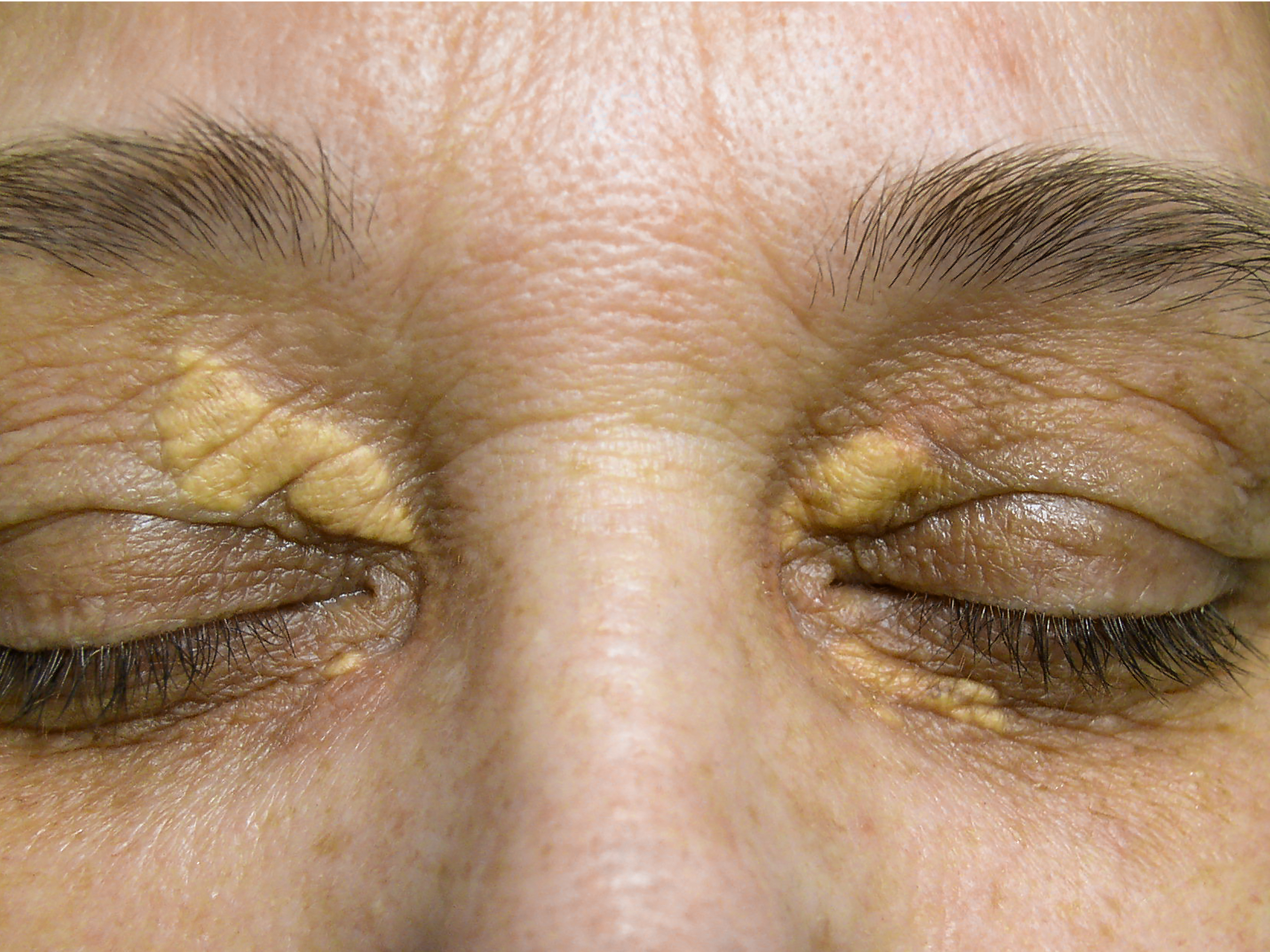- Some people are genetically predisposed to high cholesterol because of a condition called familial hypercholesterolemia (FH).
- FH can be diagnosed with genetic testing and some of its symptoms include wart-like bumps on the eyelids and knees, chest pain, and sores on the toes.
- People with FH are five times as likely to develop coronary heart disease.
- This article was reviewed by Steven Reisman, MD, a cardiologist and the director of New York Cardiac Diagnostic Center.
- Visit Insider’s homepage for more stories.
An estimated one-third of adults in the US have high cholesterol. Many of those people developed high cholesterol on their own, often from years of poor diet and little exercise.
But others are predisposed to high cholesterol from a young age, and it has little to do with their lifestyle. These people have a genetic condition called familial hypercholesterolemia, and it’s estimated that more than 90% of people with the condition haven’t been diagnosed.
High cholesterol can be genetic
Familial hypercholesterolemia (FH) is a genetic condition that makes the body incapable of removing low-density lipoprotein (LDL) – considered “bad” cholesterol – from the blood.
According to the American Heart Association, people with FH are five times more likely to develop coronary heart disease than those with average cholesterol levels. Half of men with untreated FH will have a heart attack before the age of 50, and 30% of women will have one before they turn 60. Research has also found that FH patients have a higher risk of stroke.
FH is caused by a gene mutation, but how severe your symptoms depend on whether you inherited two copies of the mutated gene or just one. Therefore, there are two versions of the condition:
- Homozygous FH is when you have two copies of the gene. This version of FH is severe and rare - an estimated one in 300,000 people have it. Untreated, people with this condition rarely live past the age of 30.
- Heterozygous FH is when you have one copy of the gene. This type is more common - an estimated one in 250 people have it. People with this condition can develop warning signs of heart disease by their 40s or 50s, and it can be fatal if left untreated.
How to know if you have FH
"Anybody that has any of those gene variants has a 50% chance of passing that gene on to their kids," says Hina Chaudhry, MD, a cardiologist at Icahn School of Medicine at Mount Sinai.
The most effective way to diagnose FH is to get your child proper genetic testing from a specialist between the ages of 2 and 10, says Mohamed Al-Kazaz, MD, a cardiologist at Mount Sinai Hospital.
Those with FH may also experience physical symptoms at a young age. Fatty deposits of cholesterol, called xanthomas, can often appear in the skin or tendons - usually by age 10 for those with homozygous FH. These deposits, which look like warts, can also appear on the eyelids, knees, heels, or elbows.
Other common FH symptoms include:
- Chest pain
- Cramping in the calves when walking
- Sores on the toes that aren't healing
- Unexpected stroke-like symptoms, such as weakness in an arm or leg, loss of balance, trouble speaking, or drooping in the face
How to lower cholesterol with FH
Lifestyle changes alone usually aren't enough to lower cholesterol for people with FH, which differentiates it from those who have developed high cholesterol without the genetic condition.
Those with FH typically need medication to lower cholesterol, in addition to adopting recommended lifestyle changes like eating a low-fat diet, quitting smoking, and regular exercise.
Statins are usually prescribed to lower cholesterol for those with heterozygous FH, as they have been associated with a reduced risk of heart disease and stroke. People with homozygous FH may need LDL apheresis - a dialysis-like procedure that removes cholesterol from the blood - and has been found to lower LDL cholesterol by about 70% to 83%.
Early diagnosis and treatment for FH patients is important. Research has found that childhood intervention can reduce the risk of mortality and coronary artery disease. And when treated, the risk of heart disease and stroke in people with FH can even drop to levels consistent with the general population.
Related stories about heart health:
- How hypertension, heart disease, and stroke are related
- What causes high blood pressure and how to know if you have hypertension
- How to lower blood pressure with a heart-healthy diet and exercise
- 7 of the most dangerous things that put you at risk of a heart attack
- What is a good resting heart rate, for adults and kids
- What is tachycardia, and when a high heart rate is dangerous
- How to lower cholesterol with the right diet and exercise regimens










